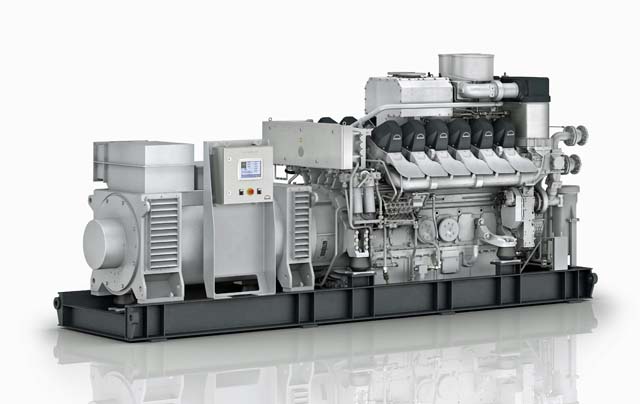Cochin Shipyard (CSL), the largest shipbuilding and maintenance facility in India, has ordered four MAN 12V175D-MEV variable-speed GenSets in connection with the building of two short-sea feeder container ships for global logistics company Samskip Group, headquartered in Rotterdam.
Known as the SeaShuttle project, the vessels will be among the first of their kind globally to be powered by individual 3.2 MW hydrogen fuel-cell-based energy systems. The MAN GenSets will act as a back-up, forming a diesel-electric propulsion plant with a permanent magnet generator.
Are Gråthen, CEO Samskip Norway, said: “Samskip is very proud to take the lead role in pioneering the SeaShuttle initiative as part of its ‘making green logistics easy’ strategy. [This] provides a platform to make emissions-free container shipping a reality. […] In line with commitments given at COP26 Clydebank Declaration, SeaShuttle would create what amounted to one of Europe’s first zero-emission ‘green corridors’.”
The 135m 500 TEU ships are due for delivery in Q3 and Q4 of 2025, respectively, and will operate between Oslo Fjord and Rotterdam, a distance of about 700 naut mile. They will furthermore be capable of being remotely controlled and come autonomous-ready.
Florian Keiler, Head of High Speed, MAN Energy Solutions, said: “This is a groundbreaking project, which sets new standards for environmentally friendly shipping. In that vein, our engines are capable of running on bio-fuels like HVO and B100 and showcase our green credentials in pursuing decarbonisation. We congratulate Samskip and CSL on this exciting venture and look forward to working closely with them.”
The 175D is a variable-speed GenSet, designed for high efficiency at low loads, inherent fuel efficiency and low emissions. As the engine believed to offer the lowest total cost of ownership in the market, the high-speed engines will each come integrated with compact, flexible closed-loop MAN SCR (Selective Catalytic Reduction) systems. Furthermore, MAN Energy Solutions says that the engines have the lowest lube-oil consumption on the market with long oil-change intervals and best-in-class times-between-overhauls (TBOs).



